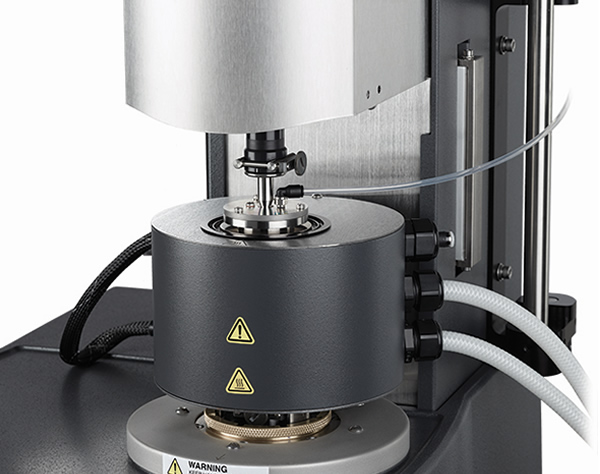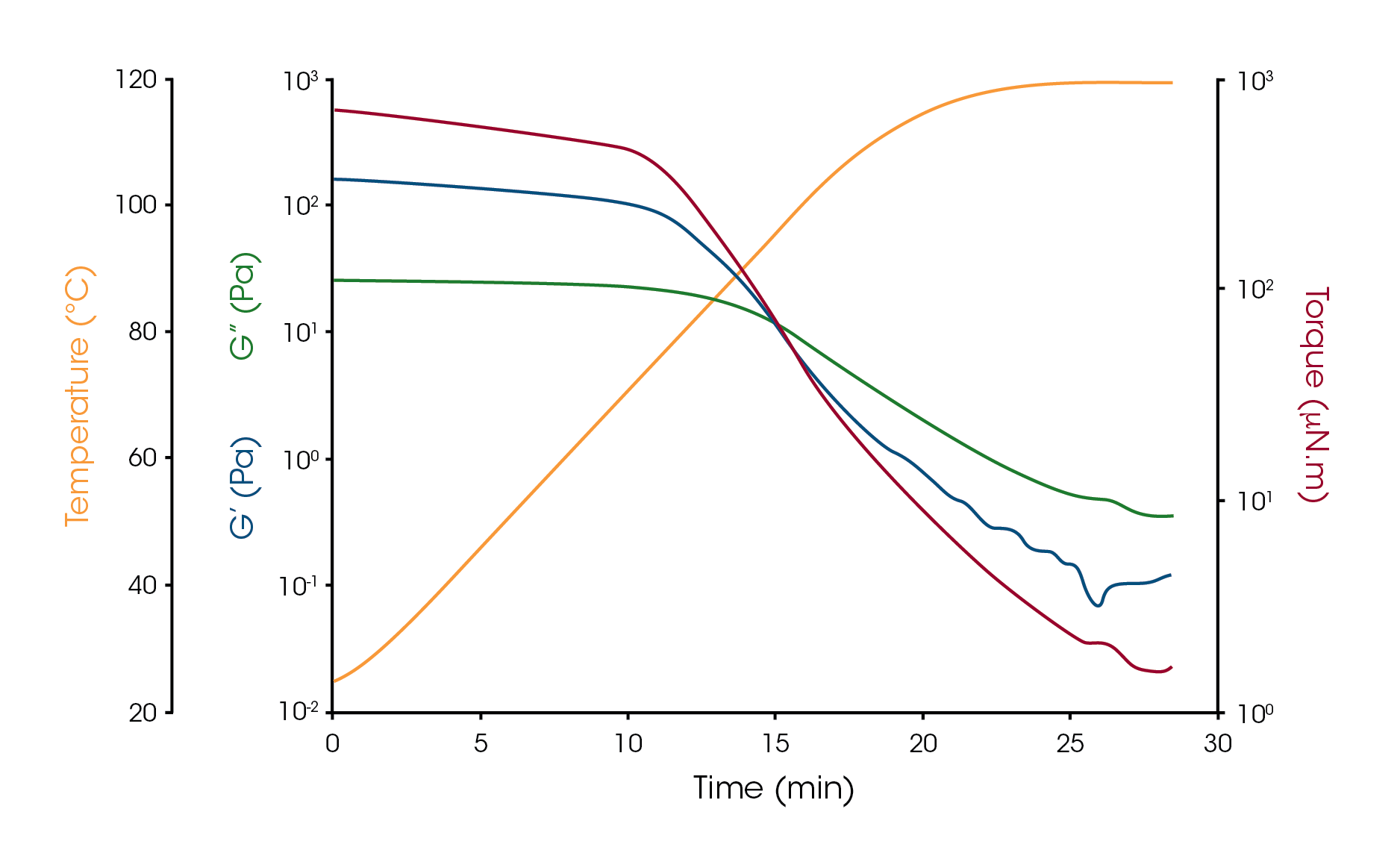
Cell (HSPC)
Unlock complete viscoelastic characterization of fluids in pressurized environments.
The all new High Sensitivity Pressure Cell (HSPC) for the ARES-G2 unlocks complete viscoelastic characterization of fluids in a pressurized environment. The HSPC is the only device that provides a wide range of dynamic oscillatory testing of materials, including low viscosity polymer solutions and structured fluids under controlled atmospheric pressure. The HSPC provides pressure (up to 5 bar) and temperature (-10 °C to 150 °C) control for viscoelastic characterization. Conventional pressure cells employ mechanical bearings that severely limit low torque sensitivity and make viscoelastic characterization impractical for most samples. The HSPC employs an innovative air bearing seal that allows unrivaled low torque performance with 100x better torque sensitivity than conventional devices. This unmatched torque sensitivity allows users to characterize critical material behavior such as time, frequency, and strain-dependence in test conditions representative of extreme processing or use conditions such as downhole or extrusion environments on the widest range of fluids.
Features & Benefits:
- Innovative, non-mechanical bearing design provides 100x improved torque sensitivity for testing a wide range of fluids, including polymer solutions and structured fluids
- Unrivaled low torque sensitivity of 1 μN.m for characterizing low viscosity fluids and weakly structured materials
- Extensive dynamic oscillatory testing capabilities to characterize time, frequency, and strain-dependent viscoelastic behavior
- Stable and accurate temperature control from -10 °C to 150 °C with the Advanced Peltier System (APS)
- Atmospheric pressure control up to 5 bar allows simulation of extreme processing and use conditions over a wide range of operating parameters
- Completely integrated experience with rheological data and sample pressure directly measured and recorded through powerful TRIOS software
- User-friendly, self-aligning design guarantees low torque performance for everyone, every time
Applications

Characterizing viscoelastic properties of fluids at temperatures above boiling poses significant challenges, most notably the loss of volatile ingredients resulting in changes to material composition. Various methods and devices have been employed to trap solvents or suppress evaporation; these can delay compositional changes at higher temperatures but are ineffective beyond the boiling point. A pressurized testing environment is the only means to characterize the rheological properties of materials under such conditions. Xanthan gum is often used as an additive for gelling and food applications. A solution of 2.5 wt% of xanthan gum in water was tested in the High Sensitivity Pressure Cell as the temperature was increased at 5 °C/min from 25 °C to 120 °C. The evolution of the dynamic moduli (G’ and G”) was measured over the entire temperature range, even above the boiling temperature of water. A crossover point is clearly identified near 95 °C, indicating the transition from a gelled state to a liquid-like polymer solution. Tracking the changing viscoelastic properties and identifying important points of interest such as the modulus crossover provide insight into the full viscoelastic behavior of materials in extreme processing or use conditions.
The all new High Sensitivity Pressure Cell (HSPC) is an innovative accessory that expands dynamic oscillatory testing capabilities of the ARES-G2 to now include pressurized test conditions. The HSPC employs an innovative air bearing seal that allows unrivaled low torque performance with 100x better torque sensitivity than conventional devices. This unmatched torque sensitivity allows users to characterize critical material behavior such as time, frequency, and strain-dependence in test conditions representative of extreme processing or use conditions such as downhole or extrusion environments on the widest range of fluids.






